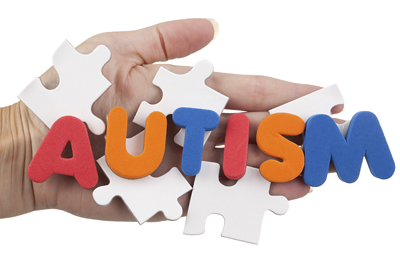Propranolol May Improve Social Skills in Youth With Autism
Abstract
The majority of current medications to treat patients with autism spectrum disorder target psychiatric disturbances associated with it, but not the social impairments that are core symptoms of the condition.
The beta-adrenergic receptor inhibitor propranolol, approved to treat high blood pressure and other heart conditions, may improve social functioning in people with autism spectrum disorder (ASD), according to a study published last month in Psychopharmacology.

“While propranolol was originally developed to control blood pressure and heart rate, it has been used [off label] for decades for the treatment of performance anxiety and test anxiety,” said senior author David Beversdorf, M.D., an associate professor of neurology, radiology, and psychological sciences at the University of Missouri Health System.
The majority of medications approved for the treatment of ASD are antipsychotics, which mainly target psychiatric symptoms associated with ASD, such as irritability and agitation, but offer little benefit for social impairments common in this patient population, Beversdorf said.
A previous double-blind, controlled trial of 14 adults and adolescents with autism led by Beversdorf and colleagues found that participants who took a single 40 mg dose of propranolol showed improvements on language tasks compared with those in the placebo group. In the current study, the researchers aimed to expand these findings by assessing effects of propranolol on social interaction.
Beversdorf and colleagues randomized 20 participants with ASD (mean age of 21 years) to receive a single dose of propranolol (40 mg) or placebo via an oral capsule. An hour after the participants took the medication, the researchers engaged participants in a conversation, where they were rated on several social skills: staying on topic, sharing information, reciprocity or shared conversation, transitions or interruptions, nonverbal communication, and maintaining eye contact. Overall conversational reciprocity was measured using the conversational reciprocity task of the General Social Outcome Measure.
The results showed that acute propranolol exposure significantly improved participants’ overall performance on the conversational reciprocity task compared with placebo. Among the six social skills assessed, improvements in sharing information and nonverbal communication were significantly associated with propranolol treatment.
Although no side effects were reported in the current study, Beversdorf did warn that lightheadedness, fatigue, and the potential to worsen asthma have been associated with acute treatment of propranolol.
“The present pilot study is the first single-dose, placebo-controlled investigation of the acute effects of propranolol on conversational reciprocity in individuals with ASD,” the researchers wrote. “Future studies exploring propranolol’s effects in larger, randomized, controlled trials are imperative for further characterizing its benefits for this population, as well as predicting which individuals are most likely to respond,” they concluded.
Due to the paucity of evidence for medications that adress the social challenges of ASD, Beversdorf added that any medication that addresses such features is of great importance.
The study was supported by a grant from the Health Resources and Services Administration of the Department of Health and Human Services. ■



